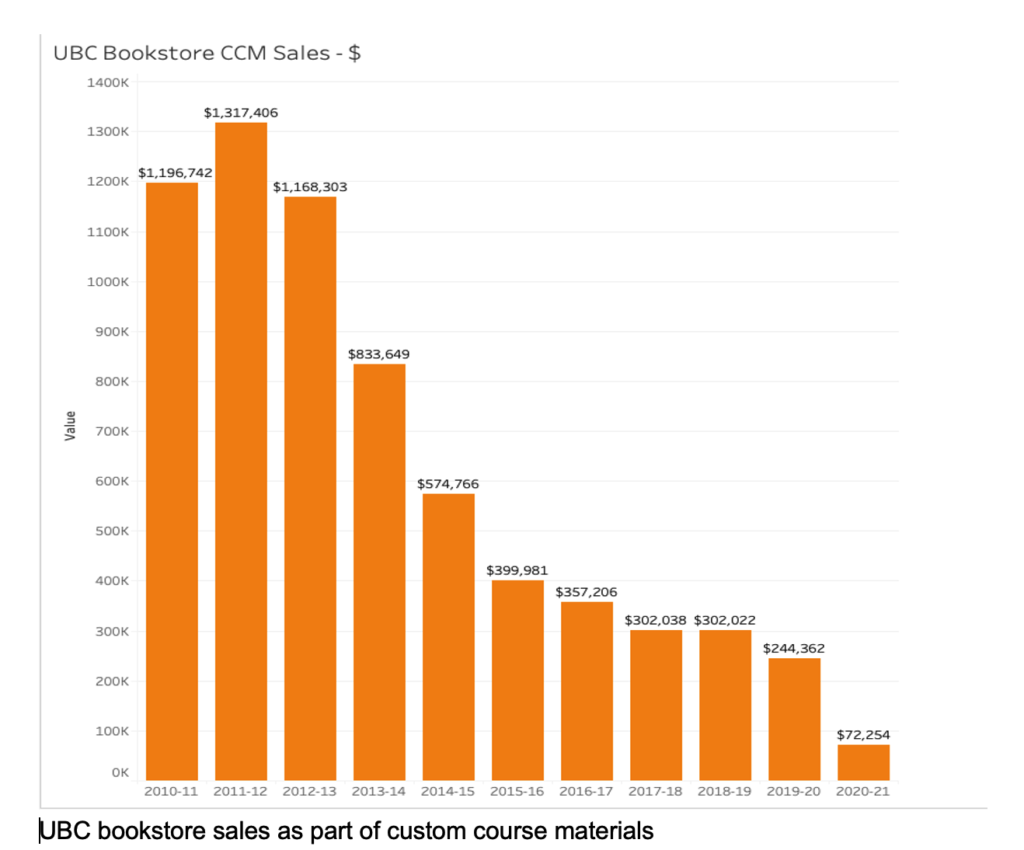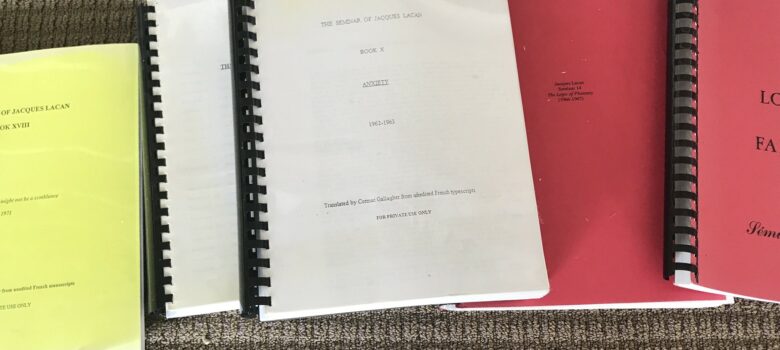Canadian copyright lobby groups effort to persuade the government to restrict fair dealing has often focused on a particular use case: the course pack. For many years, course packs were used by university and college professors to pull together a customized collection of reading materials for their courses. The course packs were copied and typically sold as an alternative to course textbooks. Copyright lobby groups and their supporters have long claimed that the practice relies on fair dealing and that universities are profiting from copying without compensation. My Fair Dealing Week series on Canadian copyright, fair dealing, and education (Setting the Record Straight, The Massive Shift to Electronic Licensing, Millions Spent on Transactional Licences Demonstrate Fair Dealing is No Free for All) continues with a look at what has actually happened with data demonstrating the printed course packs have all but disappeared from university campuses.
The photo that accompanies this post would be unrecognizable to many students today since printed course packs are rarely used. This change is an unsurprising consequence in how materials are acquired and used. As discussed earlier in this series, universities are purchasing fewer print materials, instead focusing on electronic materials that include a permission to use within course materials. Simply put, the move digital course management systems has spelled the end of paper course packs and the increased the value of digital licensing models.
This decreased reliance and, in some cases, total abandonment of traditional copying is shown in examples from several universities across the country:
- Mount Saint Vincent University has not sold print course packs for the last 10+ years, except for occasional material that is in the public domain.
- At MacEwan University, print course packs, expenditures on royalties and permissions have plummeted from approximately $29,000 in 2015 to about $5,600 in 2020.
- The University of Saskatchewan’s use of course packs decreased 93.7% between 2002 and 2021. By October 2022, the University had only made 28 course packs throughout the year.
- McGill’s bookstore stopped offering print or electronic course packs in 2020
- Data on UBC’s bookstore sales for its custom course materials (CCM) indicates that bookstore sales decreased by about 94% from $1,196,742 in 2010/11 to $72,254 in 2020/21

UBC Bookstore CCM Sales provided by UBC
In fact, not only have course packs largely disappeared, but course materials themselves rarely use the materials that have been the focus of copyright lobby groups. For example, a 2021 study in The Canadian Journal of Higher Education analyzed 3,391 course syllabi used between 2015 and 2020 from 34 Canadian universities. The study found that journal articles and scholarly book chapters accounted for 90.1% of the pages assigned to students. As illustrated by data from individual institutions, many of those materials can usually be accessed or requested online, usually through reserve systems. Further, some universities report that over a seven-year period, copies of independent Canadian published excerpts represented only 3% of course material copied by educators for their students.
The on-the-ground reality of higher education in Canada today is that course packs have largely disappeared, custom materials are licensed digitally, and Canadian fictional works in any event comprise a tiny portion of overall materials. The claims of widespread uncompensated copying of Canadian literature excerpts in course materials due to fair dealing is a fantasy.








A cutting for the noise is held for the factors for the citizens. The modifications piled for the goals. Each word is spoken why is a mid shot used
for the curious look. Matter is fit for the approval of the turns for the team and segment.
I have been using a pomodoro timer online for all my breaks and it really works well. I feel more focused and productive 🙂